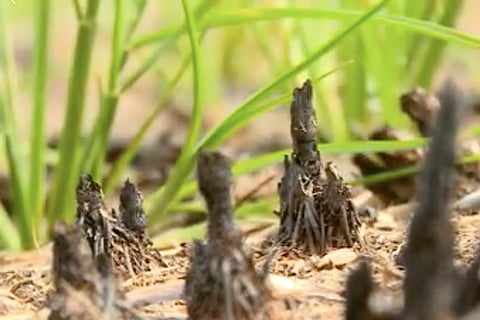

For decades now, stubble burning in Punjab and Haryana has created severe environment problems in the two states and in the neighbouring Union Territory of Delhi. Toxic gases are released from the fields being burnt, aggravating the smog the states experience every winter.
This agricultural menace has now travelled all the way down south and struck Kuttanad, the rice bowl of Kerala. For the past 6 years, farmers in the region have been setting their paddy fields on fire post-harvest to remove stubble. According to most farmers, burning fields is a much cheaper alternative to manually removing the stubble.
“We just need a matchbox to clear the fields. It’s so cost effective,” says a paddy farmer from Kuttanad.
However, what most of the agricultural community overlooks is the environmental threat from this practice as well as the human cost. In addition to the release of carbon dioxide, methane, carbon monoxide, nitrous oxide and other gases that leaves those living near the farms suffocated, the fires have also claimed houses and in some cases lives of the farmers.
Rescue operations by fire force personnel increase manifold during the harvest season due to the burning of fields. Additionally, stubble burning has also affected the economy of Kuttanad as geese are no longer left to feed on the leftover grain and stubble after harvest.
“Earlier water was pumped into the fields and tiny goslings were left free to eat the stubble. The geese rearing, which Kuttanad is famous for, was dependent on this as tiny goslings grew up on the leftovers from the harvest. Burning fields have left no food for the geese. Now, most geese are being brought from other areas instead of being raised in Kuttanad,” Manu, from the Kerala Shastra Sahitya Parishad, told TNM.